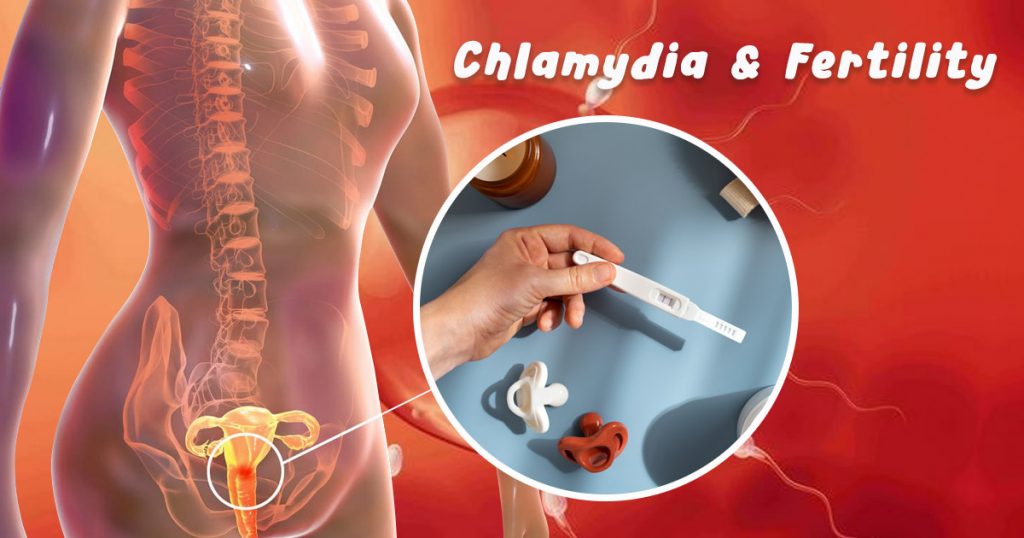Chlamydia is one of the most common sexually transmitted infections (STIs) out there, especially among young people. The scary part? Most people don’t even realize they have it since it usually doesn’t show any symptoms. According to the CDC, there are 1.6 million cases of chlamydia reported in the U.S., but the real number is likely much higher because of how sneaky it is. While it’s completely treatable with antibiotics, leaving chlamydia untreated can lead to some serious complications—including infertility. Here’s the essential things you need to know.
What Can Happen If Chlamydia Goes Untreated?
Chlamydia might not seem like a big deal at first since it often doesn’t cause any symptoms. However, if it isn’t caught and treated, it can cause major problems over time.
For Women
Untreated chlamydia can lead to a condition called pelvic inflammatory disease (PID). PID is when your reproductive organs, like the uterus, fallopian tubes, or ovaries, become infected. This can cause scarring and blockages in your fallopian tubes, which makes it harder for the sperm and egg to meet. That’s how infertility happens.
It’s hard to say exactly how long it takes for chlamydia to cause infertility in women. Some studies suggest damage can start in just a few months if the infection worsens, but others show it could take years. The general takeaway? The sooner it’s treated, the better your chances of avoiding complications.
For Men
Chlamydia in men isn’t talked about as much, but it can still affect fertility. The infection can cause epididymitis, which is inflammation in the tube that carries sperm from the testicles. This can mess with sperm quality, count, or even cause blockages.
If you’ve had chlamydia for a year or longer and are wondering if it could have affected your fertility, know that it really depends on how far the infection progressed. Not everyone becomes infertile, but the longer it’s left untreated, the greater the risk.
How Often Does Chlamydia Cause Infertility?
Infertility due to chlamydia isn’t super common, but it’s far from rare. Around 10–15% of untreated cases in women lead to PID, and some of those cases result in infertility. For men, the risk varies but is generally lower unless there’s been repeated or severe infection.
Can You Still Get Pregnant After Having Chlamydia?
Good news! Just because you’ve had chlamydia doesn’t mean you’ll automatically be infertile. Thanks to modern medicine, antibiotics can completely clear up the infection most of the time, especially if it’s caught early. However, if the infection caused damage like scarring or blockages, pregnancy might be harder to achieve.
Some people who’ve had PID might need extra help, like fertility treatments, to conceive. If you’re in this boat, don’t lose hope. Talk to your doctor about your options.
How Do You Know If Chlamydia Has Affected Your Fertility?
Unfortunately, it’s not always obvious if chlamydia has caused damage. For women, signs might include difficulty getting pregnant, but that’s often discovered only once you’re actively trying. Certain tests, like an HSG (hysterosalpingography), can check if your fallopian tubes are blocked.
For men, infertility due to chlamydia might show up in a semen analysis where sperm quality or count is found to be lower than normal. If you’re worried, getting these tests is a good first step.
How Many Times Can You Get Chlamydia Before It Affects Fertility?
There’s no magic number, but multiple untreated infections certainly raise your risk. Each episode increases the chance of complications like PID or scarring, so staying proactive about testing and treatment is key.
How to Protect Your Fertility
The best way to avoid the complications of chlamydia is to stop the infection before it has a chance to cause damage. Here are a few simple ways to stay on top of things:
- Regular Testing: If you’re sexually active, especially under the age of 25, annual STI testing is a must.
- Condom Use: Condoms are your best defense against STIs, so don’t skip them with new or casual partners.
- Communicate With Your Partner: If you test positive, make sure your partner gets tested and treated, too. Reinfections are super common if they skip treatment.
Why Taking Charge of Your Sexual Health Matters
One key takeaway from exploring this topic is how important regular checkups and open conversations about sexual health really are. It’s easy to overlook something like chlamydia because you might feel fine, but what’s happening under the radar can have long-term effects. Staying informed, using protection, and getting tested can save you so much stress down the road. Your health and future are worth taking those extra steps.
If you’re worried about past infections or fertility issues, don’t hesitate to see a doctor. There are so many ways to prevent and treat problems before they get serious. Trust me, a little effort now can make a big difference later.
